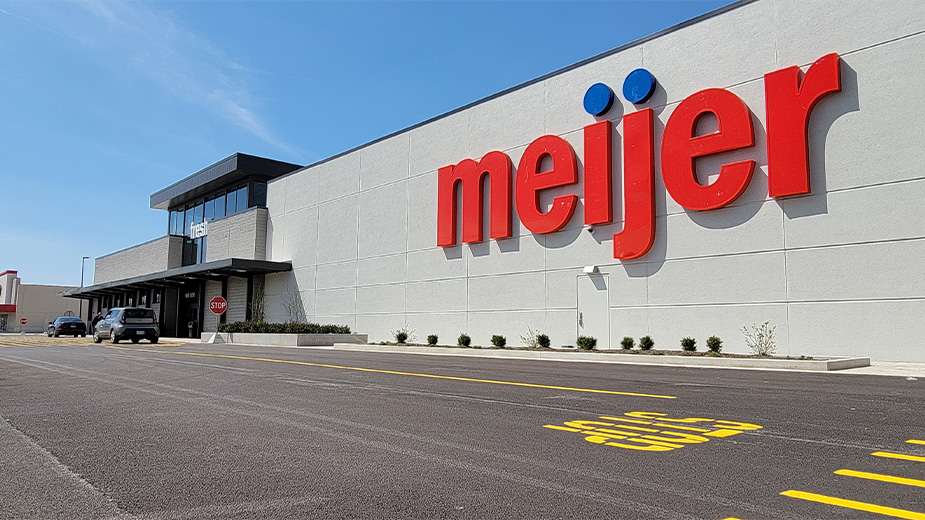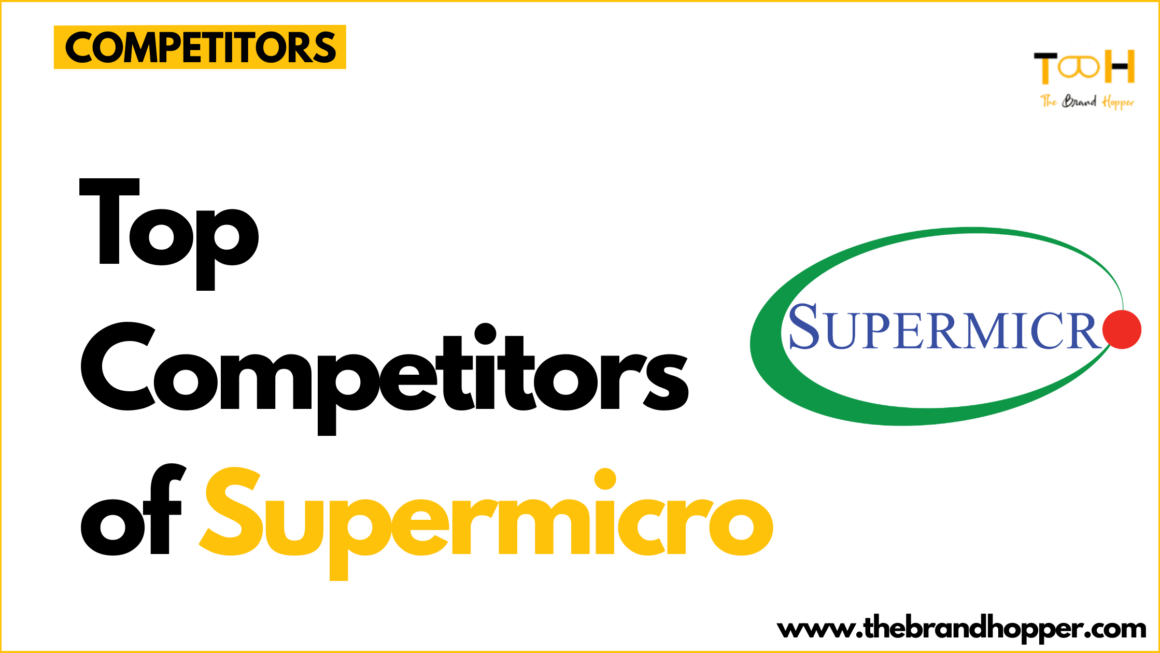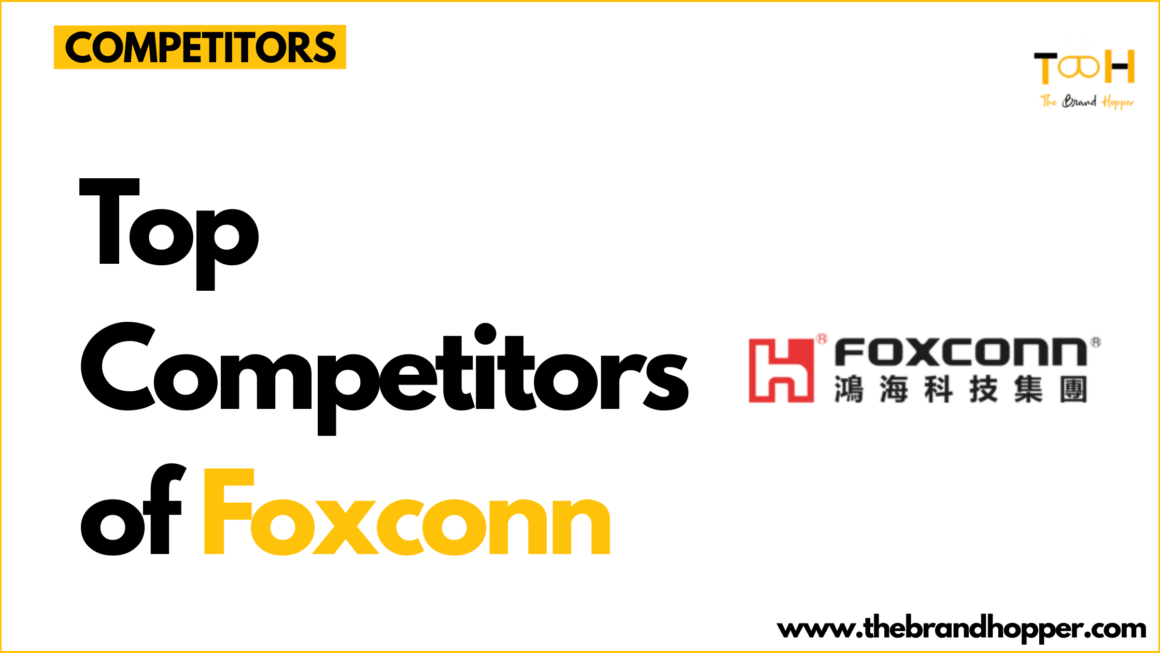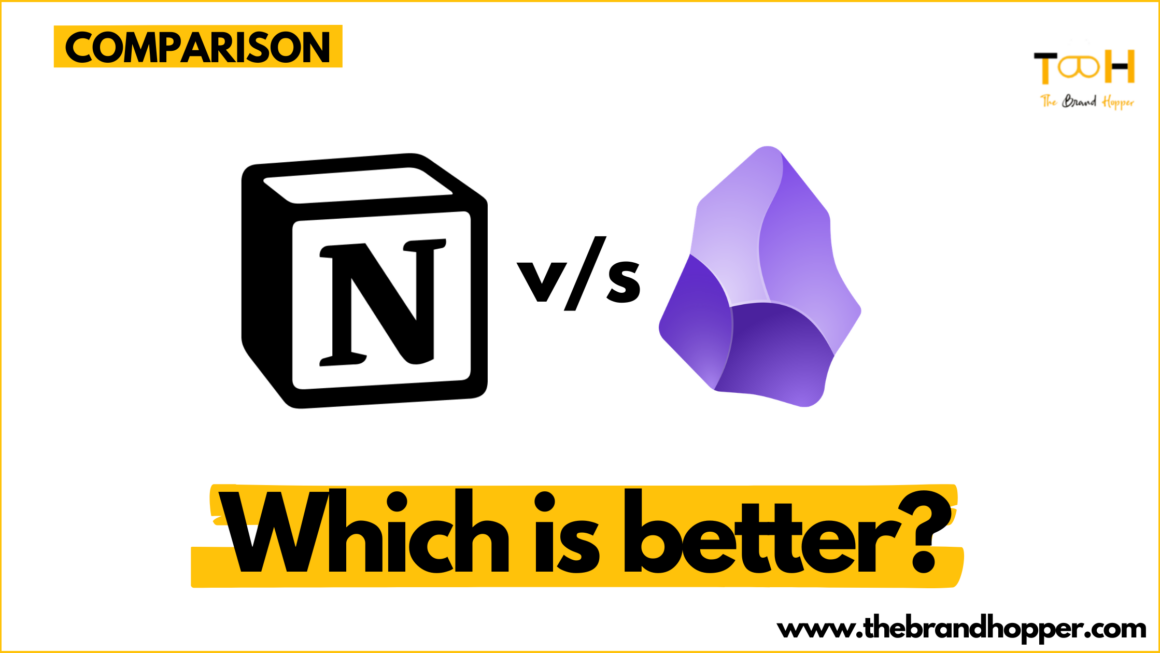Meijer is a major American supercenter chain with a rich history dating back to the Great Depression era. Founded in 1934 by Hendrik Meijer, a Dutch immigrant, and his son Frederik Meijer, the company has grown from a small grocery store in Greenville, Michigan, to become one of the largest privately-owned retailers in the United States.

The company’s origins can be traced back to when Hendrik Meijer, a barber by trade, decided to enter the grocery business during the depths of the Great Depression. He purchased $338.76 worth of merchandise on credit and opened Meijer’s Grocery in Greenville. The timing was challenging, but the Meijers’ commitment to providing quality products at affordable prices helped the business survive and eventually thrive.
Throughout the 1930s and 1940s, Meijer’s Grocery expanded slowly but steadily. In 1942, the company took a significant step by hiring additional employees beyond the family members, marking the beginning of its growth as a larger enterprise. The post-World War II economic boom provided further opportunities for expansion, and by the 1950s, Meijer had become a small chain of grocery stores in western Michigan.
A pivotal moment in Meijer’s history came in 1962 when the company opened its first “Thrifty Acres” store in Grand Rapids, Michigan. This revolutionary concept combined a supermarket with a department store, creating what is now known as a supercenter. Meijer is often credited with pioneering this retail format, predating similar concepts from competitors like Walmart and Target by several years.
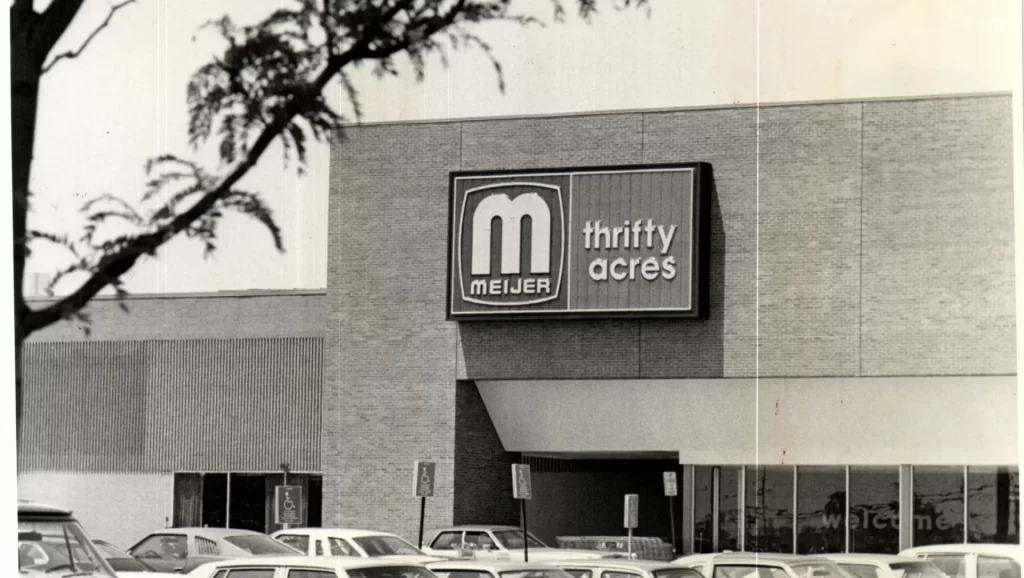
The success of the Thrifty Acres model led to rapid expansion throughout Michigan and into neighboring states. By the 1980s, Meijer had established a strong presence in Michigan, Ohio, and Indiana. The company continued to innovate, introducing computerized checkout systems in 1979 and launching a proprietary credit card in 1982.
Today, Meijer operates over 250 supercenters and grocery stores across six states: Michigan, Ohio, Indiana, Illinois, Kentucky, and Wisconsin. The company’s stores typically range from 150,000 to 250,000 square feet in size, offering an extensive array of products including groceries, clothing, electronics, home goods, pharmaceuticals, and more. Many locations also feature garden centers, automotive services, and gas stations.
One of Meijer’s key differentiators is its commitment to operating 24 hours a day, 364 days a year (closed only on Christmas Day). This policy, implemented in 1988, has made Meijer a go-to destination for late-night shoppers and those with non-traditional work schedules.
Meijer has also been at the forefront of technological advancements in retail. The company was among the first to implement self-checkout lanes in the early 2000s and has continually updated its digital offerings. In recent years, Meijer has invested heavily in e-commerce capabilities, including curbside pickup and home delivery services, to meet changing consumer preferences.
The company’s private label brands, including Meijer, True Goodness, and Purple Cow, have become popular alternatives to national brands, offering quality products at competitive prices. Meijer has also maintained a strong focus on fresh produce and local sourcing, often partnering with regional farmers and producers to stock its stores.
Corporate social responsibility has been a cornerstone of Meijer’s operations since its inception. The company is known for its philanthropic efforts, particularly through the Meijer Simply Give program, which has generated millions of dollars in food donations for local food pantries since 2008. Meijer also supports various community initiatives, educational programs, and environmental sustainability efforts.
In terms of business structure, Meijer remains a privately held, family-owned company. This status has allowed the company to maintain its long-term focus and values without the pressure of quarterly earnings reports that public companies face. The Meijer family continues to play an active role in the company’s management and strategic direction.
Meijer’s impact on the retail industry extends beyond its business operations. The company has been a significant employer in the Midwest, providing jobs to over 70,000 team members. It has also been recognized for its inclusive hiring practices and efforts to create a diverse workforce.
As the retail landscape continues to evolve, Meijer has shown a willingness to adapt and innovate. The company has experimented with smaller format stores in urban areas, expanded its selection of organic and natural products, and invested in sustainability initiatives such as solar power and waste reduction programs.
Despite facing increased competition from national chains and e-commerce giants, Meijer has maintained its position as a beloved regional retailer. Its blend of wide product selection, competitive pricing, and community involvement has fostered strong customer loyalty, particularly in its core Midwest markets.
Looking to the future, Meijer continues to focus on expansion, both in terms of physical locations and digital capabilities. The company’s ability to balance its traditional strengths with modern retail trends will likely determine its success in the coming years. As it moves forward, Meijer remains committed to its founding principles of providing quality products at affordable prices while maintaining strong ties to the communities it serves.
Marketing Strategies of Meijer
Meijer has strategically evolved its marketing efforts to differentiate itself in the highly competitive retail sector. The brand focuses on customer-centric strategies, leveraging both traditional and modern marketing approaches to create a well-rounded experience for shoppers. Here’s a detailed breakdown of their key marketing strategies:
1. Emphasis on Value and Savings
Meijer’s marketing strategy places a strong emphasis on value and savings, aligning with its core customer base of value-conscious shoppers. One of the key components of this strategy is the mPerks loyalty program, which has become a cornerstone in driving customer engagement and loyalty. The program offers personalized digital coupons, rewards, and cashback incentives tailored to individual shopping habits, enhancing customer satisfaction. With over half of Meijer’s Midwest households actively participating in mPerks, the program has proven effective in increasing both customer retention and average weekly spend. Moreover, the program’s integration with Meijer’s mobile app and online shopping platform streamlines the shopping experience, adding both convenience and tangible savings for customers.
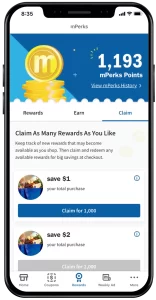
Additionally, Meijer consistently promotes value through its competitive pricing strategy. By maintaining low prices across a wide range of products, Meijer positions itself as a retailer that prioritizes affordability without sacrificing quality. This approach is reflected in its advertising campaigns, which often highlight special promotions and seasonal discounts, making Meijer a go-to destination for budget-conscious consumers. For example, Meijer frequently runs campaigns promoting Buy One Get One Free offers and multi-buy discounts, making essential goods more affordable. These tactics resonate well with their target audience, driving both foot traffic and online sales, while reinforcing their brand identity as a retailer that delivers consistent savings.
2. Localized Marketing
Meijer employs localized marketing as a core strategy to resonate with regional communities and their unique needs. The retailer organizes events like the Meijer Localization Summit, which invites small businesses from the Midwest to showcase products that highlight local flavors, culture, and preferences. This approach allows Meijer to tailor its offerings to each store, creating a more personalized shopping experience for customers. By emphasizing locally sourced products, Meijer deepens its connection with the community, offering fresh, regional items that not only support local businesses but also build customer loyalty by promoting a sense of local pride. For instance, Meijer’s Rivertown Market in Detroit stocks locally grown produce and small business products like Nikki’s Ginger Tea, helping community-driven brands expand while also meeting the local demand for fresh, unique items.
Additionally, Meijer’s emphasis on local products extends beyond food. Through partnerships with businesses like Planted Detroit, they provide fresh, locally grown salads year-round, a move that supports both local agriculture and customer preferences for fresh, healthy options. This regional focus is further reinforced through marketing campaigns that highlight the community’s involvement in Meijer’s product selection. These campaigns build customer loyalty by reinforcing that purchasing at Meijer is also supporting the local economy and culture. Meijer’s consistent efforts to source locally, such as at their annual local vendor events, demonstrate their commitment to blending large-scale retail with local market needs, ensuring they remain a trusted community partner.
3. Focus on Fresh and Quality Products
Meijer emphasizes freshness and quality as a cornerstone of its marketing strategy, especially in its grocery segment. The company sources fresh produce from local farmers, ensuring that fruits, vegetables, and other goods are delivered at peak freshness. This focus on local sourcing not only supports regional economies but also allows Meijer to stand out by offering produce that customers know is farm-fresh.
In addition to local partnerships, Meijer has launched several campaigns to highlight its commitment to quality. This is complemented by their in-house organic and natural product line, True Goodness by Meijer, which assures customers that the brand is focused on offering healthy, sustainably sourced options. By continuously aligning their marketing with customer demand for transparency and quality, Meijer is able to reinforce its brand as a trusted grocery provider.
4. Digital and Omnichannel Marketing
Meijer has embraced digital and omnichannel marketing strategies to enhance customer experience and stay competitive in the rapidly evolving retail landscape. The company has invested heavily in its digital infrastructure, developing a robust e-commerce platform that seamlessly integrates with its physical stores. In 2020, Meijer significantly expanded its Meijer Home Delivery and Pickup services, which allow customers to shop online and either have their groceries delivered or pick them up curbside. This expansion proved particularly timely during the COVID-19 pandemic, with Meijer reporting a 300% increase in digital sales in 2020. The company has also leveraged its mPerks digital coupon program to drive customer engagement and loyalty. As of 2021, the mPerks program had over 12 million members, demonstrating its success in connecting with customers through digital channels.
To further enhance its omnichannel presence, Meijer has implemented innovative technologies in its stores. In 2021, the company introduced “Shop & Scan” technology across all its stores, allowing customers to scan barcodes and bag their items as they shop, streamlining the checkout process. Meijer has also experimented with augmented reality (AR) in its marketing efforts. For instance, in 2019, the company launched an AR-based game called “Meijer Find-the-Misfits” to promote its sustainable line of imperfect produce, engaging customers through a fun, interactive digital experience. Additionally, Meijer has focused on personalized digital marketing, using customer data to tailor promotions and product recommendations. The company’s mobile app, which integrates shopping lists, digital coupons, and pharmacy services, has become a central tool in its omnichannel strategy. By bridging the gap between online and in-store experiences, Meijer’s digital and omnichannel initiatives have not only improved customer convenience but also provided valuable data insights to inform its marketing and merchandising decisions.
5. Sustainability and Corporate Responsibility
Meijer has increasingly incorporated sustainability and corporate responsibility into its marketing strategy, recognizing the growing consumer demand for environmentally conscious and socially responsible businesses. One of the company’s most prominent initiatives in this area is its “Sustainability Lives Here” program, which focuses on reducing waste, increasing recycling, and promoting sustainable products. In 2020, Meijer announced its goal to reduce absolute carbon emissions by 50% by 2025. As part of this commitment, the company has implemented various eco-friendly practices, such as installing energy-efficient lighting in stores and distribution centers, and using low-emission refrigerants. Meijer has also made significant strides in sustainable packaging, pledging to make 100% of its Meijer brand packaging reusable, recyclable or compostable by 2025. The company’s efforts extend to its product offerings as well. In 2019, Meijer introduced the “Misfits” produce program, which sells imperfect fruits and vegetables at a discounted price, helping to reduce food waste while offering customers more affordable options.
Meijer’s corporate responsibility initiatives also focus heavily on community engagement and social impact, which serve as powerful marketing tools by fostering positive brand associations. The company’s “Simply Give” program, launched in 2008, has been particularly successful in this regard. This initiative has generated more than $69 million for local food pantries, with Meijer often doubling or tripling customer donations during special campaign periods. In 2021, Meijer expanded its social responsibility efforts by pledging $1 million to support diverse-owned businesses in its supply chain. The company has also been recognized for its inclusive hiring practices, including its employment program for individuals with disabilities. These initiatives not only contribute to positive social impact but also resonate with consumers who prioritize supporting socially responsible businesses. Meijer effectively communicates these efforts through various channels, including in-store signage, social media campaigns, and dedicated sections on its website, thereby integrating sustainability and corporate responsibility into its overall brand identity and marketing strategy.
6. In-Store Experience and Customer Service
Meijer has long recognized the importance of in-store experience and customer service as crucial components of its marketing strategy, differentiating itself from competitors through a focus on convenience, quality, and personalized attention. One of Meijer’s most distinctive features is its commitment to 24-hour operations, 364 days a year (closed only on Christmas), which has been a cornerstone of its customer service approach since 1988. This policy caters to a wide range of customer schedules and needs, setting Meijer apart in the retail landscape. In recent years, Meijer has invested heavily in enhancing its in-store experience through technology. In 2019, the company introduced “Shop & Scan” technology across all its stores, allowing customers to scan and bag items as they shop, significantly reducing checkout times. This innovation not only improves efficiency but also demonstrates Meijer’s commitment to adopting technologies that enhance the shopping experience. Additionally, Meijer has focused on creating specialized in-store experiences. For example, in 2020, the company opened a small-format grocery store called “Woodward Corner Market” in Royal Oak, Michigan, featuring a more curated product selection and emphasizing fresh, local items, catering to the specific needs and preferences of urban shoppers.
Meijer’s customer service strategy also extends to personalized interactions and community engagement. The company has implemented extensive training programs for its employees, emphasizing the importance of friendly, helpful service. In 2021, Meijer launched a series of commercials featuring real Meijer team members, highlighting the personal connections between staff and customers. This campaign not only showcased Meijer’s commitment to quality service but also reinforced its image as a community-oriented retailer. Meijer has also leveraged its pharmacy services as a key component of its in-store experience and customer service strategy. During the COVID-19 pandemic, Meijer pharmacies played a crucial role in vaccine distribution, administering more than one million doses by May 2021. The company set up numerous in-store vaccine clinics and even utilized its parking lots for drive-through vaccination events, demonstrating its ability to adapt its in-store services to meet urgent community needs. Furthermore, Meijer’s focus on fresh produce and local sourcing enhances its in-store experience, with many locations featuring expansive produce sections and partnerships with local farmers. This emphasis on freshness and locality not only improves product quality but also creates a more engaging shopping environment, reinforcing Meijer’s position as a trusted, community-focused retailer.
7. Collaborative Partnerships
Meijer has strategically leveraged collaborative partnerships as a key component of its marketing strategy, forging alliances with various organizations to enhance its brand visibility, expand its product offerings, and strengthen its community ties. One notable example is Meijer’s long-standing partnership with local farmers and suppliers. In 2022, the company announced that it had purchased more than $400 million in produce from local growers across its six-state footprint. This “Home Grown” initiative not only supports local economies but also resonates strongly with customers who value fresh, locally sourced products. Meijer has also formed partnerships with national brands to create unique in-store experiences. For instance, in 2019, Meijer collaborated with Coca-Cola to launch an exclusive line of Michigan-themed Coca-Cola bottles, celebrating local landmarks and fostering a sense of regional pride among customers. The company has also partnered with well-known brands like Skechers and Nike to create shop-in-shop concepts within its stores, offering customers a more immersive brand experience while driving foot traffic.
Meijer’s collaborative approach extends beyond product partnerships to encompass broader community and sustainability initiatives. In 2021, Meijer announced a partnership with Uber Technologies to pilot a delivery service in select markets, expanding its omnichannel capabilities and reaching new customer segments. The company has also formed strategic alliances to advance its sustainability goals. For example, Meijer partnered with Dow to create a recycled plastic shopping bag made with post-consumer recycled plastic from Meijer customers. This circular economy initiative not only demonstrates Meijer’s commitment to sustainability but also engages customers in the process, creating a powerful marketing narrative. In the realm of community outreach, Meijer has collaborated with various non-profit organizations. A prime example is its partnership with the National Minority Supplier Development Council (NMSDC), through which Meijer pledged $1 million in 2021 to support diverse-owned businesses in its supply chain. These collaborative efforts not only enhance Meijer’s corporate image but also create opportunities for co-branded marketing campaigns, expanding the company’s reach and reinforcing its position as a socially responsible, community-oriented retailer.

